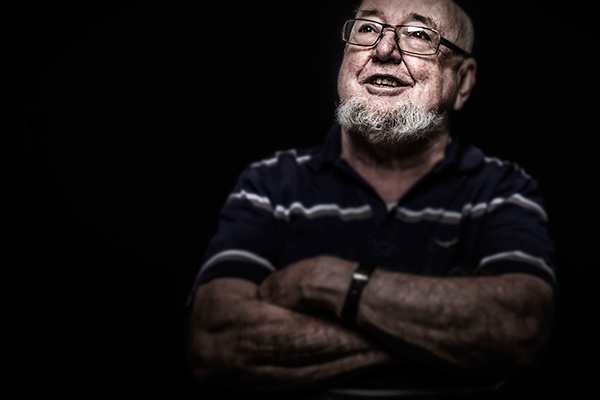September 29, 2014
Reflections on 50 years of fiction
American Nobel Prize winning author and journalist, Ernest Hemingway, would have been a great tweeter, mused our own ‘living national treasure', Thomas Keneally.

Keneally made his passing reference to Hemingway during a special one-day visit today (29 September) to the UOW in a year marking his 50 years as a writer.
The 78-year-old author delivered a plenary talk, ‘50 years of Fiction’ at a conference with papers surveying Keneally’s representations of Australia and the place of his work in the world. It included commentary on his well-known The Chant of Jimmie Blacksmith and on his Booker Prize-winning novel of 1982, Schindler’s Ark (which Stephen Spielberg made into his Academy Award-winning movie, Schindler’s List). Keneally has also won the Miles Franklin award twice.
The conference was hosted by the Colloquium for Research in Texts Identities and Cultures, Faculty of Law, Arts and Humanities, under the auspices of the Association for the Study of Australian Literature and as part of Associate Professor Paul Sharrad’s Australian Research Council project.
Professor Sharrad said the conference was the celebration of the career of a ‘Living National Treasure’.
“Hemingway would have been a great tweeter with his gift for brevity. He would have revelled in sending commentary restricted to 140 characters,” Keneally told UOW media.
Keneally too is no Luddite having readily latched on to social media outlets like Twitter.
But the man who has produced more than 50 books is not about to pronounce the demise of the printed text.
“We are tactile creatures,” he said alluding to the fact that readers still enjoy the feel of a book in their hands.
Keneally’s first novel in 1964 was The Place at Whitton which is being republished this year by Random House. It was written after Keneally had just left St Patrick’s seminary after spending six years studying for the priesthood. He left before he was due to be ordained.
“I wrote this at a time when there was no visible literary community including any literary festivals.
“I embarked on a career without even checking if one could make a living out of this,” he said.
Since embarking on his first book, Keneally has acted, scripted plays and films, written a host more novels, written historical books, won a fistful of prizes, led several campaigns (for improved conditions for writers’, for an Australian Republic, for better treatment of asylum seekers), taught in the US, been translated into over a dozen languages, and had more media appearances than many politicians.
With the centenary of the Gallipoli campaign set to take place next year, Keneally is concerned that Australia will go into jingoistic overdrive with declarations of how Australia was born in the dunes of Turkey.
“I do not wish to belittle the incredible sacrifices made by our soldiers during World War 1which included my own uncle serving in the AIF. But Australia was not born on the battlefield of Gallipoli.”
The author referenced 1901 as the year Australia was born when, without bloodshed, the states joined forces to form a Federation.
Keneally counts his blessings that he is still able to work at his age highlighting that writing offers that benefit. He is currently working on a novel involving a family who knew Napolean when he was exiled by the British to the island of St Helena.